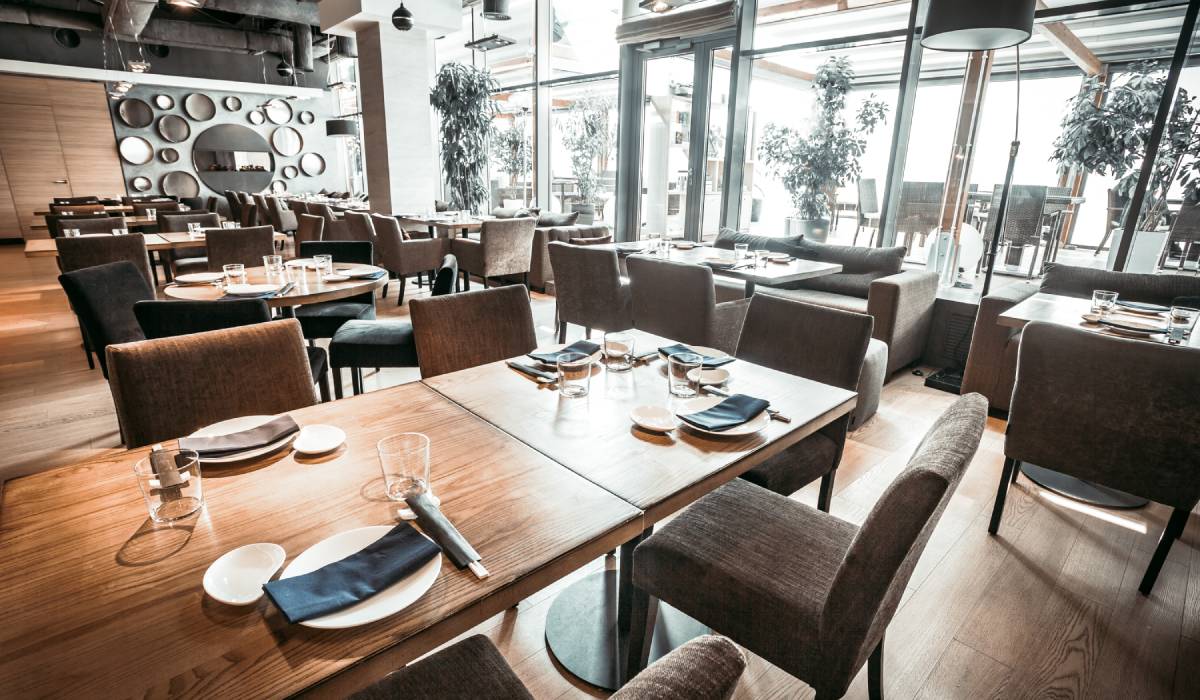7 Tips for Restaurants to Prevent Bursting Pipes in the Bitter Cold
NOV82023Feature

Adobe StockIdeally, you want to take preventive measures before the winter months.SHARE:
Many parts of the country are no stranger to arctic air masses this time of year. This type of weather system brings both bitter cold and wind chills that create dangerous conditions for those in its path, affecting not only people, roads, and vehicles, but building infrastructure, too. Frozen pipes can be a concern in buildings during the cold months, which, if left unaddressed, can burst and cause further structural damage. Every year, an average of over 250,000 structures suffer damage from frozen and burst pipes, estimated to result in $400-500 million in damages each year.
Here we’ll review what causes frozen pipes, how they can affect your business operations, and seven ways to help prevent them from occurring in the first place.
When to Prepare Pipes For Cold Weather
Now is the time to take preventive measures to avoid frozen pipes in your buildings and structures. Ideally, you want to take preventive measures before the winter months and before bitter cold air fronts approach.
7 Tips to Help Prevent Bursting Pipes in the Bitter Cold
- Slow drip. If your water pipes pass through unheated or unprotected enclosed spaces, allow a slow drip from your faucets to reduce the buildup of pressure in the pipes. Even if water in a pipe does freeze, the pressure release from a slow drip may help to reduce the likelihood of a ruptured pipe.
- Allow warmer room air to reach enclosed pipes. Where water pipes are vulnerable near exterior walls, open the cabinets under faucets and consider removing basement ceiling tiles to expose these pipes to warmer air from the room. This allows the warmer air from the room to circulate into those enclosed areas and may help to keep those pipes warmer, possibly preventing a ruptured pipe.
- Set the thermostat to at least 55 degrees. Maintain a minimum interior building temperature of 55 degrees Fahrenheit. Periodically check on any unoccupied buildings or spaces for signs of low interior temperatures or ruptured pipes.
- Don’t allow inside temperatures to fluctuate. Keep the thermostat set to the same temperature during day and night.
- Insulate exterior spigots. Protect outdoor spigots with insulating domes or other coverings to reduce the likelihood of those water pipes freezing and rupturing. Disconnect all exterior hoses from outdoor spigots.
- Monitor space heater use. As always, use extreme caution and constant supervision with space heaters.
- Shut off water immediately if you notice a leak. If you notice any water leakage, immediately shut off the system control valves that lead to any leaking pipes to reduce water damage and business interruptions. Immediately contact a licensed and qualified plumber to assess the situation to prevent further damage and to make necessary repairs.
- Contact your insurance company. The sooner a claim is received, the sooner it can be processed, managed and brought to resolution. Also, take photos of any damage and keep the ruptured pipe if repairs are done before the claim is submitted.
Though winter doesn’t officially clock in until December 21, now is the time for restaurants and bars to take preventive measures to avoid frozen—then burst—pipes in buildings and structures. If winter has already arrived, it’s still better late than never. Seal all exterior cracks, holes, windows and doors to prevent cold air from coming inside. Also seal and insulate interior pipe stacks, chases and enclosed spaces – and especially those water pipes that are most vulnerable, near exterior walls.
At Society Insurance we are committed to providing meaningful protection for your business. That’s why Society policyholders gain the collaborative and consultative partnership of our risk control experts and access to exclusive safety resources developed to keep your workplace safe and profitable. Contact your local Society Insurance agent to discuss the details that make the biggest difference for your unique operation.
